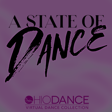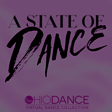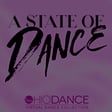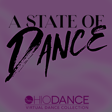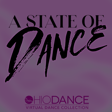
Samuel A. McIntosh on street dance: roots and future
Season Two, Episode Five: This month’s guest is Samuel A. McIntosh. McIntosh is a talented dancer and choreographer specializing in street dance styles, including Popping, Animation, and Boogaloo. With 15 years of experience, he has learned from legends and competed internationally, achieving recognition in events across the globe. An arts administration graduate, he advocates for Hip-Hop's community-building potential through its core values, fostering empowerment and creativity in others. He is the Founder of 10K Movement, a nonprofit organization that focuses on providing access to authentic Hip Hop and Street dance programming and education.
OhioDance A State of Dance is a six-part series coming out the fourth Friday of each month through November 2024. This podcast is driven by the OhioDance mission to secure the foothold of dance in Ohio through increasing visibility, firming viability, and elevating the position of dance in Ohio.
In 2016, a five-person team set out on a mission to capture the achievements of persons and institutions who have shaped the intricate diversity of dance history and practice within the state of Ohio and weave them together in an easily accessible digital format. This we call the OhioDance Virtual Dance Collection. As of 2024 we have highlighted 37 individuals and institutions. The team has traveled over 5000 miles and interviewed hundreds of individuals in all five regions of Ohio. vdc.ohiodance.org
If you like what you are listening to and are not a member of OhioDance, you can go to ohiodance.org and click the membership button to join and receive the many benefits that come with your membership. You can also donate through our purple donate button.
